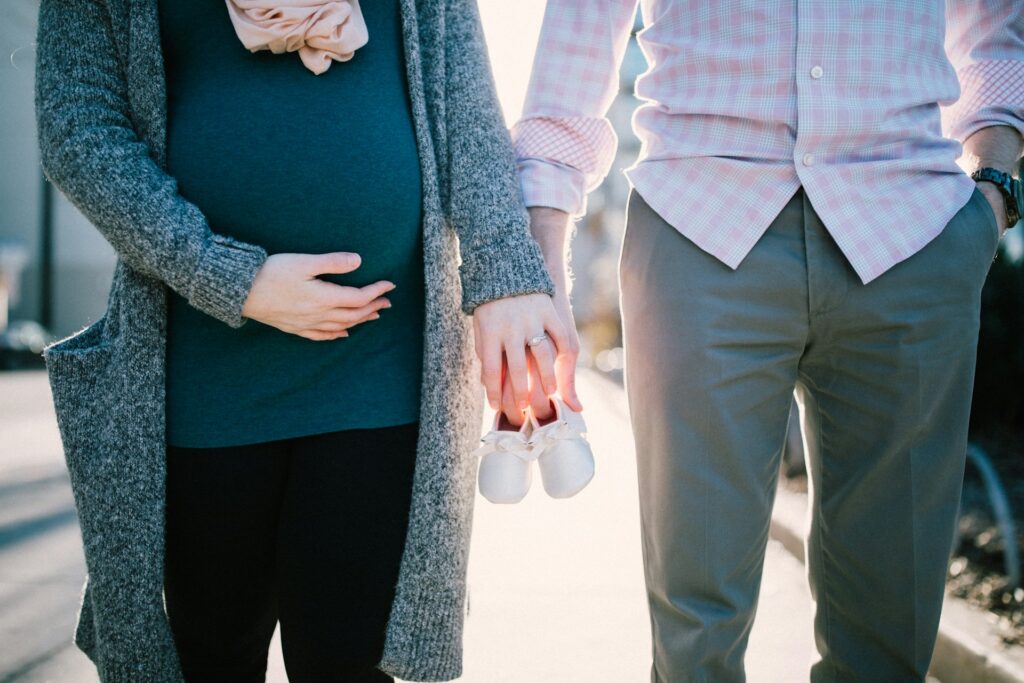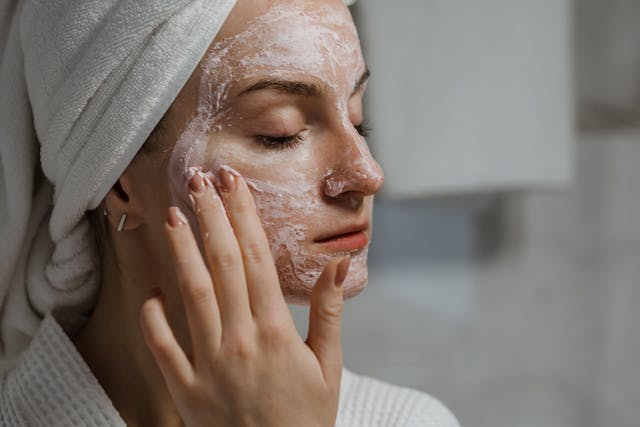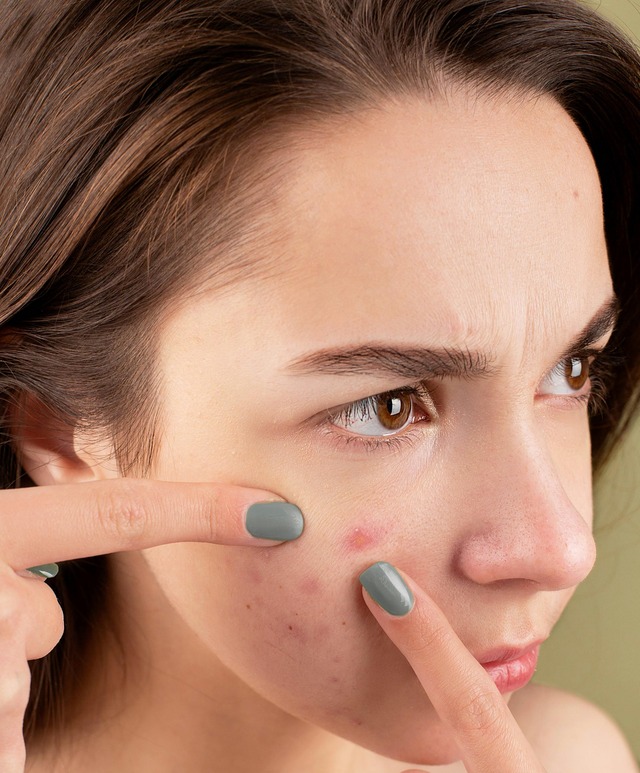- What does the body change after pregnancy?
- Changes in facial skin texture after pregnancy
- Beauty routine after pregnancy: How to help your skin
- Body care begins in the shower
- Start exercising again
- Gentle Cleanser
- Regeneration of Epidermis by Hydrating
- Moisturize your body to clear skin blemishes
- Hydrated skin to help firm breasts
- Sun Protection: A Fundamental Step
- Proper Exfoliation and massage
- Specific treatments for dark spots
- Rest and Adequate Nutrition
- Conclusion
Any Sweet Imperfections? Your Body After Pregnancy, irregularities like Rounder shapes, some stretch marks, larger breasts, and probably a more tired face, but undoubtedly illuminated by happiness!
The body after pregnancy inevitably changes, more or less, depending on the case, because many factors influence it and there are no rules that are valid for everyone. If you have recently given birth and you do not feel in great shape, it is very normal. The important thing is to know how to accept yourself even with some “imperfections” that can still be remedied, but without haste and stress.
What does the body change after pregnancy?
Belly
This is the part of the body that undergoes the most visible changes after pregnancy. The belly may show stretch marks, loss of tone, and accumulation of fat, this is because the abdominal skin has been stretched and pulled, and it is possible that it will not return to being as toned as before. This process causes collagen and elastin fibers to break down. Once they appear, it is difficult to eliminate them. So the recommendation is to prevent them from the very beginning. These marks are linear and red, pink or white.
Breasts
Immediately after giving birth, the breasts become larger because they fill with colostrum and then milk, therefore, this size remains unchanged for a few weeks, that is, for the entire duration of breastfeeding.
Hands, feet, neck, and ankles
During pregnancy, your body produces about 50% more blood and other body fluids to accommodate your developing baby. It can take weeks for the fluids to be eliminated, so it is normal to notice these areas swollen due to fluid retention.
Arms and back
During pregnancy, the body produces the hormone relaxin in greater quantities and this can weaken the limbs, even the least trained. The result is flaccid arms and weaker shoulders.
Cellulite
Also known as orange peel, it is produced by the accumulation of fatty tissue that forms lumps and holes in the skin. Cellulite tissue is located three to five millimeters below the top layer of skin. Our muscles are surrounded by deposits of fatty tissue of varying thickness. Fat tissue is connected by a network of fibers, composed of elastin and collagen.
When this system works well, toxins are excreted from the body. However, when the system is disrupted, toxins begin to accumulate and the connective tissue becomes saturated with fluid full of waste products. This liquid begins to thicken over time, becomes harder and harder, and over time the so-called pockets get a recognizable external visual – we hate orange peel or cellulite!
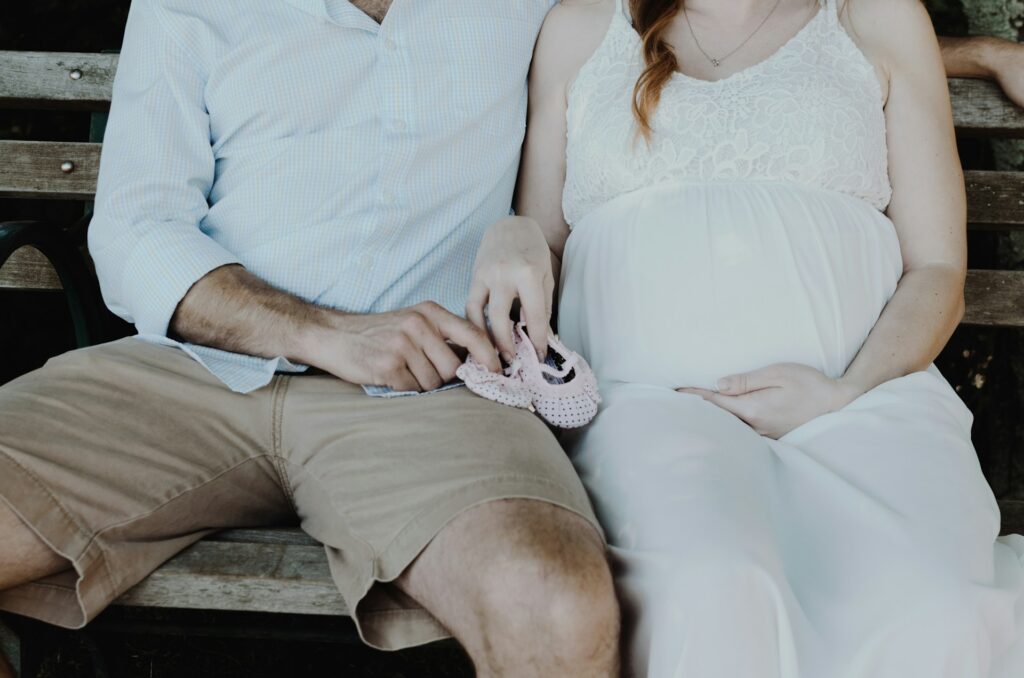
Changes in facial skin texture after pregnancy
Dry, flaky skin
The sharp drop in progesterone and estrogen levels after childbirth makes the skin more sensitive and dry.
Acne
Due to the sudden drop in estrogen levels, the sebaceous glands are activated and produce more oil. Acne can also be promoted by the stress caused by your baby’s arrival.
Dark circles under the eyes
Fatigue, stress, and long sleepless nights result in bags and hyperpigmentation in the eyelids.
Hyperpigmentation of the skin after the pregnancy
Due to hormonal changes, hyperpigmentation of the skin occurs due to excess melanin. In the second and third trimesters of pregnancy, melanocyte-stimulating hormone reaches its highest levels, a product of increased progesterone and estrogens. Excess melanin (a substance produced by melanocytes in the outermost layer of the skin), in conjunction with exposure to sunlight, leads to hyperpigmentation.
Melasma
The most characteristic result of that process of estrogen and progesterone is a brownish patch on the cheeks, upper lip, forehead, and nose. This is called melasma. Freckles, marks, and scars that were on the skin before pregnancy may also become darker. Melasma does not go away until 3 to 6 months after giving birth when hormones return to normal. The same happens with hyperpigmentation of the areola of the nipples and the linea alba of the stomach.
Varicose veins
One of the changes that occur in the skin in the period after birth is the appearance of varicose veins. They occur because there is an increase in blood flow, which dilates the vessels. They look like small, bright red spots, surrounded by blood vessels that resemble spider legs.
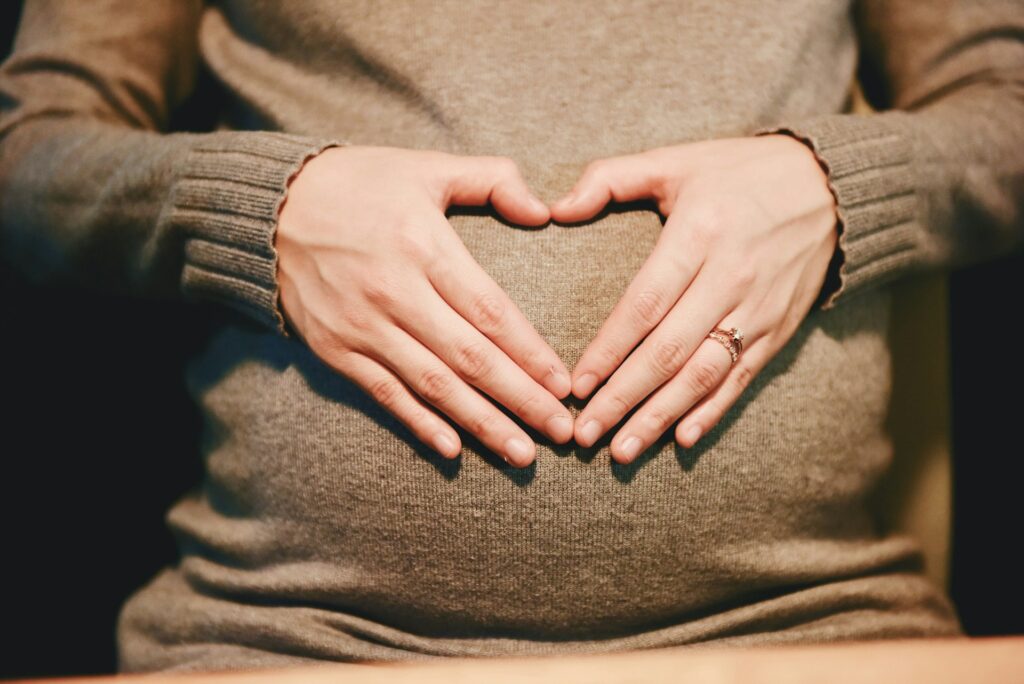
Beauty routine after pregnancy: How to help your skin
Body care begins in the shower
Only clean skin can be healthy and beautiful. And that’s why the skincare routine starts in the shower. Make sure that the water is not too hot because excessive temperature damages the skin. During extreme cold, a hot shower is fine, but for the skin of the body, a slightly lower temperature is a better choice, which will please the body, relax it, and use more than a hot shower.
Showering in slightly cooler water has several advantages. The pores will be compressed and the skin will be tightened. The outer layer of the skin will become stronger and more resistant to injury. Unlike hot water, slightly colder water will not dry out the skin and will preserve its natural oils in the skin. After showering, dry the skin by gently patting, not rubbing.

Start exercising again
Even if you have little time, you can take long walks with the wheelchair or take an hour now and then to do exercises and walk, the best way to get your body moving again after pregnancy. To improve the belly area, try abdominal exercises, pilates, or yoga, to speed up recovery. You can Take proper advice from a dermatologist or fitness trainer to start a personalized exercise plan.
Gentle Cleanser
Use a cleanser without sulfates or artificial fragrances to gently cleanse your face. It is important to start with a gentle, hydrating facial cleanser that will help restore balance to your skin. Choose the products carefully with natural ingredients and free from harsh chemicals that will not irritate your skin as well as according to your skin type.
Regeneration of Epidermis by Hydrating
After the birth of your baby, it is normal for your skin to appear loose, less toned, and drier. This is due to the drop in pregnancy hormones in your blood! Added to this is the fact that the skin on your body dries out faster than that on your face.
Use a firming and hydrating product formulated for postnatal twice a day for one to two months. Hyaluronic acid or glycerin can be a good choice. If you want a product that dries quickly, opt for a gel or cream gel whose active ingredients penetrate more quickly. Your skin will quickly regain the strength and elasticity it has lost.
Moisturize your body to clear skin blemishes
It may be that after giving birth, the brown line on your belly or dark spots around your eyes or cheekbones are still present. Choose a moisturizer specifically formulated for new mothers every day. and be patient! Often the brown line and pregnancy spots disappear spontaneously a few months after giving birth. If not, consult a dermatologist. To prevent them from returning, protect yourself with a preventive anti-spot cream.
Hydrated skin to help firm breasts
After the birth of your baby, whether you are breastfeeding or not, your breasts are less firm. Use products that help restore firmness and relieve breast tension. it must be alcohol-free and lightly scented so as not to disturb the baby during feeding. Use it morning and evening with circular movements towards the neck.
Sun Protection: A Fundamental Step
Even if you spend most of your time indoors with your little one, sun protection is still important. Exposure to UV rays can cause irreversible skin damage and worsen dark spots or hyperpigmentation caused by pregnancy. Use a broad-spectrum sunscreen with a high SPF every day, especially on your face and hands.
Proper Exfoliation and massage
The skin after pregnancy slowly returns to its state from 9 months ago – be patient, understanding, and support it in this process. Regularly used body scrubs and relaxing massages will help you restore its former firmness. The scrub will remove dead skin and cleanse the pores. A gentle DIY body scrub can be a good idea for the process.
Specific treatments for dark spots
If you have noticed dark spots appearing on your skin due to pregnancy, you may want to consider specific treatments. Creams containing ingredients such as vitamin C and kojic acid can help reduce the appearance of dark spots and improve the brightness of your skin. However, always consult your dermatologist before using more intense treatments.
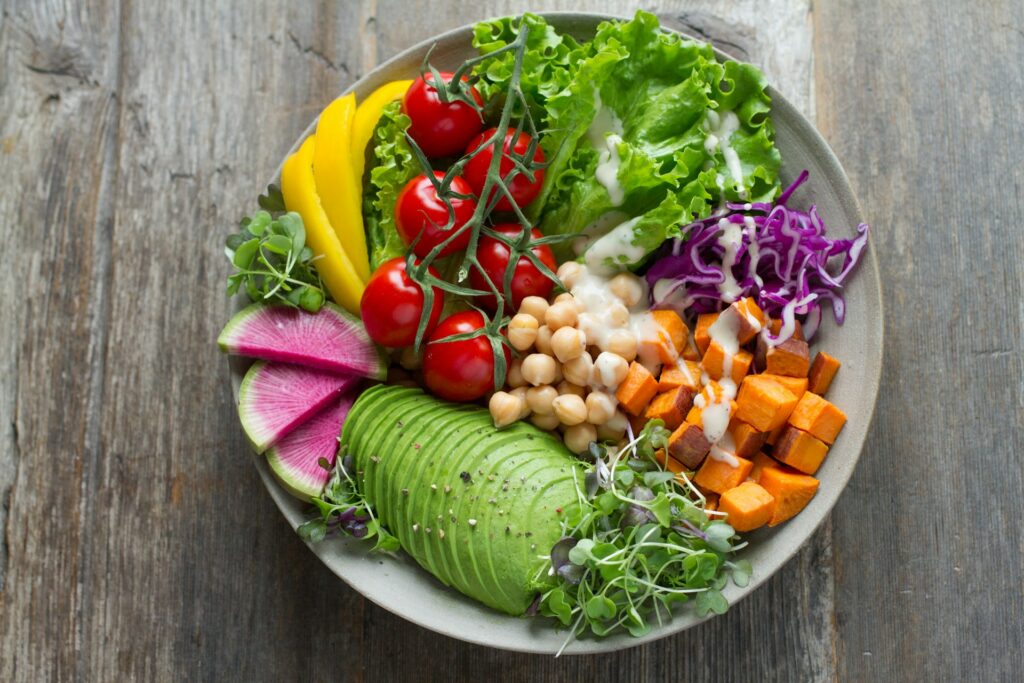
Rest and Adequate Nutrition
No beauty routine can replace adequate rest and good nutrition. Try to sleep when your baby allows and maintain a balanced diet rich in antioxidants. To combat water retention typical of the postpartum period, nutritionists recommend consuming foods rich in potassium, such as fruit and vegetables, and drinking a lot, at least 2 liters of water a day, especially if you are breastfeeding.
In general, follow a healthy and balanced diet, rich in all the essential nutrients, Also include products with vitamins A and E, such as the following: Dairy products, Citrus fruits, Nuts, Vegetable oils, and Green leafy vegetables.
what you eat passes into the milk and, therefore, also keep in mind that some foods should be avoided, because they alter the flavor (such as artichokes and broccoli), while others increase the risk of gas colic in the baby.
Conclusion
The beauty of becoming a parent is a unique and unforgettable experience, but we all know how challenging it can be. Between hormonal changes, limited sleep, and new responsibilities, skincare can easily fall by the wayside. However, it’s never too late to take care of yourself and restore your glow. Time to enjoy and take care of yourself is key. Ask for relief from babysitting, shower without looking at the clock, and dedicate yourself to a skincare routine. Happy motherhood to all.
